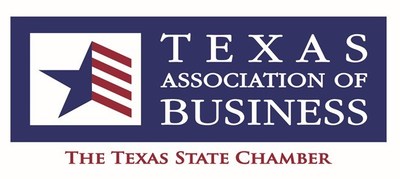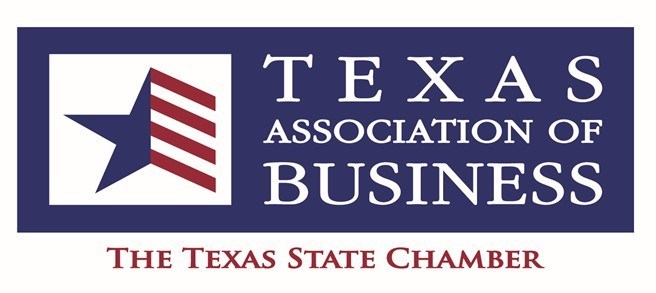Report finds that a heavy focus of U.S. financial regulations on correspondent banking, particularly between the U.S. and Mexico, has become ineffective, misplaced, and economically harmful
AUSTIN, Texas, April 28, 2022 /PRNewswire-HISPANIC PR WIRE/ — The Texas Association of Business (TAB) and the National Bankers Association (NBA) today announced the release of a groundbreaking econometric report on the unintended adverse economic and social effects that current U.S. anti-money laundering (AML) and combatting financial terror (CFT) regulations have had on cross-border correspondent banking relationship between the U.S. and Mexico.

Correspondent banking is the provision of services by one financial isntitution to another financial institution, including affiliates, in different countries. A correspondent bank acts as an intermediary or agent, facilitating banking services on behalf of another bank and its customers.
The new report, authored by former Under Secretary of Commerce for Economic Affairs Dr. Robert J. Shapiro, found that misplaced emphasis of U.S. AML/CFT regulations and enforcement on correspondent banking, with particular attention to transfers between the United States and Mexico, contributed to a cumulative U.S. GDP loss of $38.3 billion, approximately $5.5 billion per year, between 2012 and 2018.
Econometric analysis documents the following economic effects of the current misplaced regulation of the correspondent banking market:
- The impact of AML/CFT regulation of correspondent banking on FDI from Mexico to the U.S. was associated with slowing GDP growth by about $5.6 billion per year and slowing employment gains by an estimated 40,728 jobs in a given year from 2012 to 2018.
- The constriction of the correspondent banking market reduced Mexican FDI flows to the United States by an estimated $477 million per-year from 2012 to 2018 and reduced the estimated stock of FDI in the United States over those years by nearly $3.3 billion.
- These same declines in correspondent banking are associated with an estimated $1.4 billion reduction in the U.S. stock of FDI in Mexico.
- These effects depressed U.S. employment growth by an estimated 285,100 positions from 2012 to 2018, or an average of 40,730 jobs per-year.
The analysis also found that:
- $6.3 billion in U.S. bulk currency was transferred in 2021, half of it from tourism and the rest from payments to Mexican workers employed near the U.S.-Mexico border, “pocket remittances,” carried back to Mexico by visiting migrants, and criminal proceeds seized by the Mexican government.
- Over the past decade, the Mexican government and banking institutions have established modern systems to track cross-border transactions and comply with AML/CFT standards and protocols, and the IMF and World Bank have commended Mexico for these developments.
- Despite the reduced risk in engaging with Mexican financial institutions in cross-border transactions, concerns about misplaced regulatory scrutiny have sharply contracted the correspondent banking marketplace, driving a 92% reduction in participating U.S. institutions from 20 to just two since 2016.
- The decline in correspondent banking relationships associated with misplaced AML/CFT efforts reduced Mexican exports to the United States by $74.3 billion over the decade from 2011 to 2021 compared to what would have been expected without the changes in correspondent banking.
- The reduction in Mexican exports associated with the reduction in correspondent banking dampened U.S. employment growth by an estimated 113,830 jobs from 2011 to 2021
- Populations adversely affected by the constriction of the correspondent banking market for remittances are generally those least able to bear those associated burdens and costs, including lower-income individuals often with marginal access to financial institutions.
Dr. Shapiro’s report found that current AML/CFT regulations are costly, ineffective, and misplaced, significantly impacting foreign direct investment and trade between the two countries. Dr. Shapiro and his team applied a novel, econometric model to analyze the impact of such regulations.
These ineffective regulations restrict the services Mexican correspondent banks can provide and limit the flow of cash remittances in and out of the country.
“Our econometric analysis shows that the reductions in cross-border correspondent banking relationships and values associated with AML/CFT efforts have resulted in slower growth in foreign direct investment and trade between the two countries than would have been expected but for the AML/CFT focus on correspondent banking,” Dr. Shapiro said. “These efforts disregard more than a decade of documented Mexican government and banking institution steps to sharply reduce the risk of money launderers taking advantage of the nation’s banks and correspondent banking arrangements. The result instead has substantially reduced the number of banks in the remittance business, in turn increasing the burden and cost of sending and receiving remitted funds and adversely affecting those generally least able to bear those associated burdens and costs, including lower-income and often unbanked individuals with marginal access to financial institutions.”
“Dr. Shapiro’s groundbreaking work illustrates the importance of repairing current AML/CFT regulations, especially because we know financial and economic instability is a key driver of migration flows,” TAB CEO Glenn Hamer said. “U.S. institutions need to be told it’s safe to engage in the correspondent banking marketplace. The longer the status quo is maintained, the bigger the ongoing impact will be to GDP, FDI, and jobs on both sides of the border.
“Dr. Shapiro’s paper makes crystal clear that the correspondent banking marketplace needs updated and unambiguous guidance that reflects the reality of the current banking environment and reverses outdated policies that harm those least able to shoulder the cost.”
Dr. Shapiro’s report is being released with the additional support of the National Bankers Association, a trade group representing minority-owned banks across the U.S. and fighting for increased access to financial inclusion and banking services.
Dr. Robert J. Shapiro is an economic advisor and chairman of DC-based economic analysis firm Sonecon, LLC. Dr. Shapiro has advised Presidents Bill Clinton and Barack Obama, Vice President Albert Gore, Jr., British Prime Minister Tony Blair and Foreign Secretary David Miliband, Secretary of State Hillary Clinton, Treasury Secretaries Robert Rubin and Timothy Geithner, and other senior members of the Clinton, Obama and Trump administrations and the U.S. Congress.
The white paper can be found at: https://www.txbiz.org/correspondentbanking
TAB is the Texas State Chamber, representing companies of every size and industry. The Association’s purpose is to champion the best business climate in the world, unleashing the power of free enterprise to enhance lives for generations. Follow TAB on Facebook, Twitter, and LinkedIn.
MEDIA CONTACT: Katie Greer
Phone: 512-550-5147
[email protected]
Logo – https://mma.prnewswire.com/media/1806570/Texas_Association_of_Business_Logo.jpg
SOURCE Texas Association of Business







